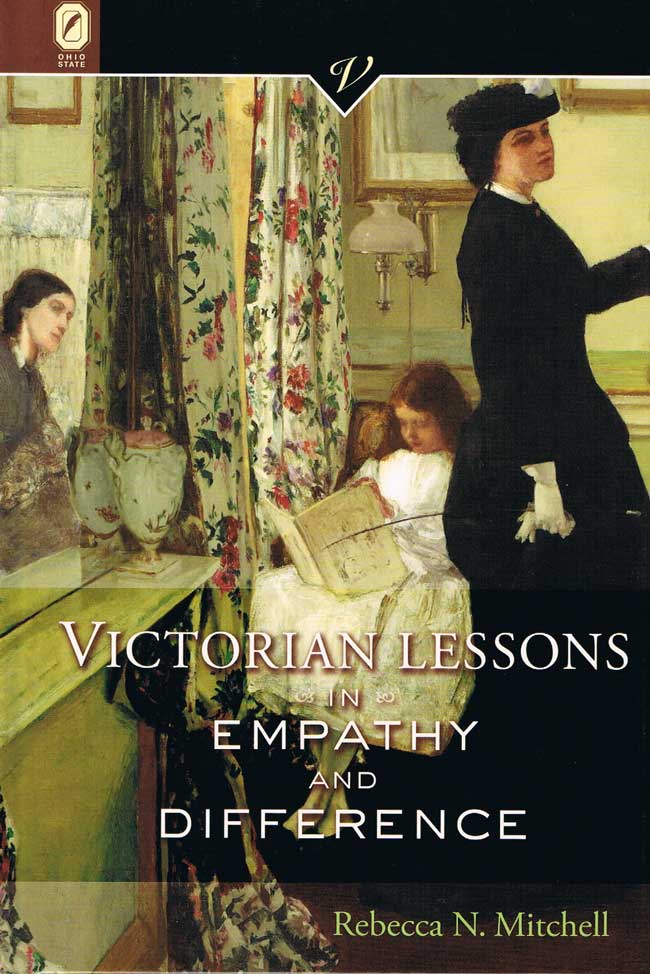Victorian Lessons in Empathy and DifferenceRebecca N. MitchellVictorian Critical Interventions |
 11/14/2011 Literary criticism/European/English 153 pp. 6x9  $24.95 paperback 978-0-8142-5511-7 Add paperback to shopping cart Shopping Cart Instructions Review/Change Shopping Cart & Check-out | |||
|
Table of Contents
Explore More James McNeill Whistler: Exhibitions at the Freer Resources James McNeill Whistler, from the Collection of the National Gallery of Art |
“In this ambitious, interdisciplinary monograph, Rebecca N. Mitchell draws on theories of alterity by Emmanuel Levinas to intervene in current discussions of realism and sympathy. Her argument, supported by close analysis of novels by Dickens, Eliot, and Hardy, and extended to paintings by Whistler, is clear, fresh, and provocative. Victorian Lessons in Empathy and Difference will be an essential book for Victorian scholars interested in visual and literary forms.” —Linda M. Shires, professor of English, Yeshiva University “Rebecca N. Mitchell’s scrupulous analysis of sympathy and the Victorian novel will be influential in Victorian studies. I predict it will provoke many interesting discussions.” —Stephen Arata, Mayo Distinguished Teaching Professor at the University of Virginia Looking closely at the work of Charles Dickens, George Eliot, Thomas Hardy, and James McNeill Whistler, Rebecca N. Mitchell reframes conventional considerations of Victorian empathy and argues that the recognition of alterity, and not identification, is the basis of the intersubjectivity depicted in realist texts and paintings. In the nineteenth century, encounters with the other are represented through the disconnection between subjects within the novel or painting’s space; representation of that intersubjective inscrutability is elemental to the realist project. Victorian Lessons in Empathy and Difference amplifies the fundamental distinction between the characters within a text or image—who are intimately unknowable to each other—and the material texts and images—which are eminently knowable to the reader or viewer. To this end, Mitchell’s exploration of alterity is grounded in the tradition of Emmanuel Levinas, whose work establishes a vocabulary for considering otherness outside of dialectical oppositions, binaries which so often define recent constructions of Victorian subjectivity. The study turns explicitly from the usual paradigms for encountering Victorian otherness—race, gender, colonized status, or class—to focus instead on the representations of difference where proximity typically precludes the recognition of alterity.
| |||


